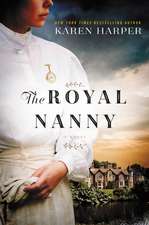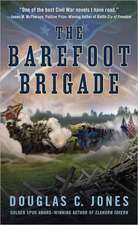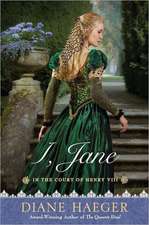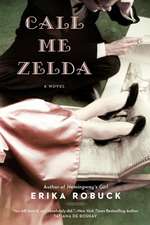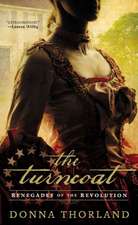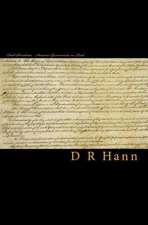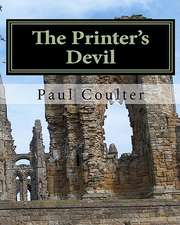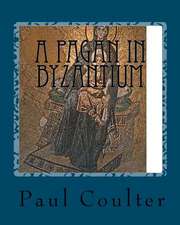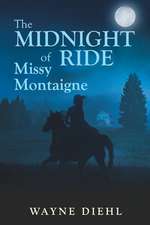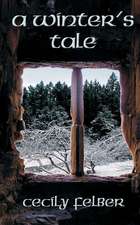Mistress Shakespeare
Autor Karen Harperen Limba Engleză Paperback – 31 dec 2009 – vârsta de la 18 ani
A bold and intriguing novel about the woman who was William Shakespeare's secret wife, by the national bestselling author.
As historical records show, Anne Whateley of Temple Grafton was betrothed to William Shakespeare just days before he was forced to wed the pregnant Anne Hathaway. Here, Anne Whateley takes up her pen to tell the intimate story of her daring life with Will. Obliged to acknowledge Will's publicly sanctioned marriage, Anne Whateley nevertheless follows him from rural Stratford-Upon-Avon to teeming London, where they honor their secret union, the coming together of two passionate souls. Persecution and plague, insurrection and inferno, friends and foes all play parts in Anne's lively tale.
Spanning half a century of Elizabethan and Jacobean history, and sweeping from the lowest reaches of society to the royal court, this richly textured novel tells the real story of Shakespeare in love.
As historical records show, Anne Whateley of Temple Grafton was betrothed to William Shakespeare just days before he was forced to wed the pregnant Anne Hathaway. Here, Anne Whateley takes up her pen to tell the intimate story of her daring life with Will. Obliged to acknowledge Will's publicly sanctioned marriage, Anne Whateley nevertheless follows him from rural Stratford-Upon-Avon to teeming London, where they honor their secret union, the coming together of two passionate souls. Persecution and plague, insurrection and inferno, friends and foes all play parts in Anne's lively tale.
Spanning half a century of Elizabethan and Jacobean history, and sweeping from the lowest reaches of society to the royal court, this richly textured novel tells the real story of Shakespeare in love.
Preț: 183.92 lei
Nou
Puncte Express: 276
Preț estimativ în valută:
35.20€ • 36.61$ • 29.06£
35.20€ • 36.61$ • 29.06£
Carte disponibilă
Livrare economică 24 martie-07 aprilie
Preluare comenzi: 021 569.72.76
Specificații
ISBN-13: 9780451229007
ISBN-10: 0451229002
Pagini: 448
Dimensiuni: 137 x 210 x 25 mm
Greutate: 0.45 kg
Editura: New American Library
ISBN-10: 0451229002
Pagini: 448
Dimensiuni: 137 x 210 x 25 mm
Greutate: 0.45 kg
Editura: New American Library
Notă biografică
Karen Harper is a New York Timesߝ and USA Todayߝbestselling author whose novels, both historical and contemporary, have been published worldwide. A former college and high school English instructor, Harper now lives in Columbus, Ohio, and Naples, Florida, and frequently travels around the country to promote her books and speak about writing.
Extras
Prologue
LONDON, FEBRUARY 10, 1601
When I opened my door at mid-morn and saw the strange boy, I should have known something was wrong. I'd been on edge for three days, not only because of the aborted rebellion against the queen, but because Will and I were at such odds over it—and over our own relationship.
"You be Mistress Anne Whateley?"
My stomach knotted. The boy was no street urchin but was well attired and sported a clean face and hands. "Who wants to know?" I asked as he extended something to me. He must have a missive saying someone was ill. Or dead. Or, God save us, arrested.
"'Tis a tie from a fine pair of sleeves meant for you with other garments too, once adorning Her Majesty's person," he recited in a high, singsong voice as he placed a willow-green velvet ribbon laced with gold thread in my hand. In faith, it was beautiful workmanship.
"Didn't want me carrying all that through the streets," he added.
"'Tis all waiting for you at the Great Wardrobe nearby."
"I know where that is, lad, but have you not mistook me for another? I have naught to do with the queen's wardrobe."
"Three figured brocade gowns, two fine sleeves with points and ribbon ties, a butterfly ruff and velvet cloak for the Lord Chamberlain's players to use at the Globe Theatre. Since they be busy today, I am to fetch you to receive the garb."
Of late certain nobles had given me donated garments to pass on to Will's fellows. I'd done many things for the players behind the scenes, as they put it. I'd once helped with costumes, and that at court too. In the disastrous performance but three days ago, I'd held the book and prompted the players. I'd copied rolls for Will and his fellows as well as taken his dictation. Many knew I had helped to provide the fine cushions that padded the hard wooden seats beneath the bums of earls and countesses who graced the expensive gallery seats at the Globe. So mayhap the word was out that I was the Jack—or Jill—of all trades at the Globe.
Yet things from the queen's wardrobe? It was said she had more than two thousand gowns, so I supposed she could spare a few. The Shakespeare and Burbage company had performed before the court both at Whitehall and Richmond, but after the catastrophe of the Essex Rebellion, three days ago, Her Grace was donating personal pieces to them? Surely, she had heard that they had staged Will's Richard II, a play some whispered had intentionally incited the rebellion against her throne.
I'd told Will—another of our arguments—that promoting that tragedy at that time could be not only foolhardy but fatal, so thank the good Lord the Virgin Queen valued her favorite plays and players. The promised garments must be an olive branch extended to them. At least this would prove to Will once and for all something else I'd argued for years. Elizabeth Tudor was a magnanimous monarch, not one who should be dethroned or dispatched before God Himself took the sixty-seven-year-old ruler from this life. "One moment," I told the boy. "I must fetch my cloak, for the wind blows chill."
And blows ill, I thought, as I put away the pages of As You Like It, so-called a comedy, for it was larded with serious stuff. Will and I had been feuding over what was love, and I was looking at a copy of his role as Jaques, the part he'd written for himself. Like this character, Will had been "Monsieur Melancholy" lately and, looking closer at Jaques' lines, I'd been appalled by what I'd found. And though Will and I were not speaking right now, I meant to take it up with him too. More than once he'd stripped our tortured love bare for all London to see, devil take the man, and he meant to do it again in this play!
"We're off straightaway then," the lad called over his shoulder as I followed him out the door into the courtyard. I lived in the large Blackfriars precinct, but it was still a goodly walk to the Wardrobe. Ever since I'd set foot in London eighteen years before, I'd loved this area and Will did too. When we were young and even more foolish than we were now at thirty-six years of age, Blackfriars was our fantastical place. We'd oft pretended we owned a fine brick mansion set like a jewel in green velvet gardens among homes of the queen's noblemen and gentry.
And to think that Gloriana herself had dined at Blackfriars earlier this year in the Earl of Worcester's house! She'd been met at the river and carried up the hill on a palanquin, I recalled with a sigh. At Blackfriars too the queen's noble cousin, the Lord Chamberlain, the players' patron, lived in elegant style in Hunsdon House. Maybe, I thought, his lordship had put in a good word for Will and his men in this Essex mess, so the queen had decided not only to forgive them but to reward them.
Still hieing myself along apace with the boy down the public street edging the area, I had to watch where I stepped to avoid the reeky central gutter and the occasional pan of slop thrown from upper windows. Others were abroad, but the streets still seemed greatly forsaken in the wake of the ruined rebellion. The half-timbered facades and their thatched brows frowned down on us, making the narrow streets even more oppressive.
We entered through the eastern gatehouse I so admired. As ever, I craned my neck to savor the venerable grandeur of its three stories. Its diamond-paned windows gazed like winking eyes over the city with fine views of mansions and their great privy gardens, old Bridewell Palace across the Fleet to the west, the city walls and even the bustling Thames.
Will and I had once found the gatehouse's lower door ajar. Holding hands, we'd tiptoed up the twisting stairs. Standing stripped of goods, the rooms were being whitewashed for new owners. Such narrow but elegant, sunny chambers!
"Next time 'tis offered, I'll buy it for you," Will had promised grandly, though he had but three pounds to his name after sending money back to Stratford.
"Says you, the dreamer, my marvelous maker of fine fictions," I'd retorted. But our lovemaking had been very real, and I yet treasured the memory. Nor, I told myself, would I forget this one, for I'd never been inside the vast structure that housed the queen's wardrobe, that which was not of immediate need and kept at Whitehall Palace.
I'd adored Elizabeth of England from the first moment I'd seen her, gorgeously gowned, on a white horse, when I was but eleven and she'd come to visit her favorite, the Earl of Leicester, near my home in Warwickshire.
The boy led me round the corner into an alcove hidden from the street. He knocked thrice upon it.
"Do you serve Her Majesty?" I asked while we waited.
"I serve those who serve her," he said only.
I meant to question him further, but the door creaked open and an old woman with face wrinkles like cobwebs stood there with her sleeves rolled up. She wore a broadcloth apron as if she were tending a kitchen. "Follow me," she said, not waiting for introduction or comment. The boy did not enter with us but closed the door behind me. It thudded nearly as loud as the beating of my heart, which I told myself was only from our quick pace and my excitement to see this place.
"Farthingales here. Watch your head," the old woman muttered. I trailed her through a narrow alleyway of swinging metal hoops, like lonely bird cages, over which the queen's elaborate kirtles and petticoats would be draped. We plunged down an alley of sweetsmelling sleeves arranged by color, though the limited lantern light made the rich tawny, ruby and ivory hues all seem dusky. Boned bodices came next, then an aisle of fur-edged capes and robes. Of a sudden, the sweet scent of lime and lavender from the garments changed to some sharp smell that made me sneeze.
"Camphor to keep out moths," my guide said.
I jammed a finger under my nose to halt a torrent of sneezes. The maze deepened: swags of green and white Tudor bunting lined the way, then dusty, draped flags and battle banners. Suddenly, my stomach clenched with foreboding. Why would not the garments to be given me simply be ready at the door? We seemed to have passed from attire to military materials. As we rounded the next corner, my worst fears leaped at me from the shadows.
Within a dimly lit grotto of garments, behind a small portable table sat a man simply but finely attired all in black; his amber eyes shone flatly, like an adder's. It took me but a moment to realize I knew him—that is, I knew who he was. I had glimpsed him at court the time the players had taken me with them. His hunchback form was unmistakable. For months, the whole city had talked of naught but the bloodless battles between this man and the Earl of Essex. If he was here to see me—or I to see him—I dreaded to know why.
Robert Cecil, the Earl of Salisbury, the queen's closest councillor and chief secretary, was the avowed enemy of Elizabeth's former favored courtier, Robert Devereaux, Lord Essex, and his compatriot the Earl of Southampton, the men who had led the rebellion against her. It was through Cecil that the two earls had been arrested and rightly so. It was through Cecil that Will's patron, the Earl of Southampton, was being held prisoner in the Tower under the same terrible charges as his friend Essex.
"That is all," Cecil spoke to the woman, who scurried away. I remembered to curtsy. I was pleased it was quite a steady one because my legs were starting to shake. I saw we were not alone; two men—guards or secretaries?—sat at another table off to my left side. Had I been snared in a trap baited with the promise of royal garments only to be summoned to an inquisition?
"I do indeed have the pieces of cast-off wardrobe for the players you were promised, Mistress Whateley," Cecil said as if he'd read my mind. "I do not speak untruths or half-truths, and I pray you will not either. I must inform you that, since Her Majesty much enjoys the talents of the Globe's players, I can only hope they will be able to remain at large to put the royal items to good use as costumes in their dramas."
After that initial assault, I could scarce catch my air. The memory of my dear, doomed girlhood friend Kat leaped into my mind's eye, for I felt like that—trapped, floating face up, exposed, bereft of help, hope or even breath.
"Fetch a seat for Mistress Whateley, Thompson," Cecil said, and a man jumped to obey. It was some sort of folding camp stool. I perched poised on the edge, telling myself to sit erect and to show calm and confidence no matter what befell. Oh, yes, I could be a player too. And I was not such a country maid that I did not know this was to be a war of wits, and that this one the rabble called Robertus Diabolus—Robert the Devil—had the upper hand.
I tried to buck myself up: however much at odds Will and I were now, had I not been so close to him and the players that I was well armed with clever turns of phrase? I knew how to listen well for cues before responding. Yet this was the man who had inherited Sir Francis Walsingham's dreaded web of intelligencers, who had brought down the lofty likes of Essex and Southampton and had made mincemeat of lesser men and women like Will's kin.
"Thank you for your consideration, my lord," I said before he could speak again. The words, too many, I warrant, tumbled from my mouth. "For the seat, I mean, but I am also grateful for the gift of Her Majesty's cast-off garments to the Lord Chamberlain's Men, not only for them but for myself—to be able to merely care for them. We all honor our queen."
"Do we all?" he parried. "Mistress, I need straight answers from you. I have not hauled in the players themselves—yet—because I cannot abide prevarications or histrionics offstage. I have it on good authority you are forthright and have spoken your mind to the Globe's actors. And I will have you speak plainly here."
"Of course, my lord, but I cannot see why we must meet in such a place, away from others—"
"I did not think," he interrupted, "knowing Will Shakespeare as intimately as you do, a covert meeting was something new to you." My insides lurched. He knew about me and Will. How much did he know, from how far back? He must be punning upon the word knowing in the biblical sense and be aware that Will and I had met secretly off and on for years. And worse, that I had been questioned once before by someone from Her Majesty's government about where Will Shakespeare's loyalties lay.
I fought to compose my features. Our eyes met and held. His face was not uncomely, but he was so misshapen in bodily form it was said the queen called him her Pygmy. I knew of nicknames that could sting, for I was of half-Italian blood and had oft been called Gypsy or Egyptian.
Cecil's enemies called him simply the Hunchback, and during the rebellion, someone had scrawled on his front door, in a near quote from Will's description of the hunchback King Richard III, HERE LIES THE TOAD! I well knew that playwrights had been imprisoned, tortured and killed for slanders stuck on doors in London. "Let me speak plain, mistress," he said when I did not flinch under his gaze and did not respond again. "It is well known that Shakespeare and his fellow players performed The Tragedy of King Richard II, at the behest of the Earl of Essex and his dear friend-in-arms Southampton, just before the recent rebellion. I am certain I need not tell such a devoted friend of the playwright that scenes are in that drama that advocate the overthrow of a sitting monarch by a favorite of the English crowds."
"It's just a play, my lord, employing the past and hardly predicting the future." I saw where he was going now but had no notion of how best to navigate the dangers. "Indeed, the Lord Chamberlain's Men were paid a goodly sum for performing it," I continued. "They had no political statement to make, but simply needed the money, forty pieces of silver, so—"
"It should have been thirty pieces of silver!" he exploded, smacking his palm on his table, making it jump and shudder. "They are Judases, as much favor as Her Grace has shown them! And, yes, mistress, I hear you repeat the name of the Lord Chamberlain, as they bear the queen's cousin's name as patron. But," he said thrusting up both hands when he saw me ready to protest, "I know Will Shakespeare's bread is buttered on the other side too, for he's been cozy with Southampton for years, and the Shakespeare family has a convoluted, questionable past as Catholics and rebels!"
I was dumbfounded. He knew about Will's beginnings, family connections, his life from the earliest days. Then he could ruin Will with this—ruin me too.
"All I can tell you of my Warwickshire friend Will Shakespeare in all this," I said, fighting again to control my voice, "is that he prays that your lordship and Her Gracious Majesty will spare the life of his friend and sponsor the Earl of Southampton. He merely did a favor for him and for the needed money. He meant no political statement."
I was lying and I felt myself begin a fiery blush from the tip of my ears to my throat. I could only pray that the tawny hue of my skin hid that. And here I was fighting for Will when I could have strangled him with my bare hands but three days ago.
"Both earls' coming trials will decide all that," Cecil said, "but we can hardly claim that poets and playwrights are above such political frays, can we? Praying we forgive Southampton, that's what he's been up to, eh? More like, London's favorite playwright has been writing something else to stir up sedition. Ben Jonson went to the Marshalsea prison five years ago for a slanderous play," he went on, jabbing a finger at me like a scolding schoolmaster. "Thomas Kyd was questioned under extreme duress and, sadly, died soon after. Christopher Marlowe—"
"Was supposedly accidentally stabbed in a tavern brawl," I dared to interrupt. My Italian blood was up; I could not help myself. At least he seemed not to know of my past with Southampton or Marlowe either. "And," I plunged on, "it was said Marlowe was an informer for Sir Francis Walsingham, so I'm not sure what it behooves one to be an informer, as it's whispered his demise could have been an assassination and not an accident!"
"Ah," he said, and his mouth crimped in either annoyance or amusement. "The beauty does have hidden fangs as well as a clever brain."
We stared at each other in a stalemate but hardly, I thought, a truce. Air from an unseen source shifted a battle banner behind his head. One of Jaques' lines from As You Like It leaped through my mind to taunt me: "The worst fault you have is to be in love." With a shudder up my spine, I realized then what I said in the next few moments could save Will or damn him to torture, imprisonment or even death.
"But tell me," Cecil said, leaning on his elbows and steepling his long-fingered hands before his mouth, "before we go on, exactly what is William Shakespeare to you? Here you are, an exotic woman, a tempting vixen, when he has a wife and family back in Stratford- Upon-the-Avon. Tell me true, Mistress Anne Whateley, what is the man to you?"
That, I thought, was the question. For nearly two decades, since even before the day he'd publicly, legally wed Anne Hathaway, I'd not only loved but loathed William Shakespeare to the very breadth and depth of my being. What was he to me and I to him? God's truth, in my pierced and patched heart, I, Anne Rosaline Whateley, was above all else, the first Mistress Shakespeare, Will's other wife.
THE HISTORY OF ANNE ROSALINE WHATELEY
I would not have anyone believe I am untutored nor ignorant of how one's life's story is commonly constructed. I admit the previous scene of dialogue with Robert Cecil in London is not truly a prologue, for much of what I will write next came before. After all, an old adage says, "What's past is prologue." But you see, that confrontation with Cecil caused me to search my soul to record my life. What, indeed, am I to Will and to others? What and who am I to myself?
Having inspired characters in Will's plays and worked closely with him in many ways—ah, both of us love to rhyme—I have decided to arrange the events of my story as if it were a five-act play, that is, divided into the major parts of my life and story. As Will wrote for a play last year, "All the world's a stage and all the men and women merely players." And since I have the London playhouses and their people in my blood as fiercely as does he, I shall relate my narrative in such a pattern.
This tale will reveal not only my life but Will's, so entwined are our plots, so to speak. Sometimes I fear his rivals will consign his work to oblivion, or that theatrical tastes may shift yet again and judge him of no account, or that plague or the prating Puritans will shut down the playhouses permanently. If so, I pray this account will let others know him and his work even better—and justify my part in his life too.
The rendering of my thoughts, emotions and experiences is part comedy and part tragedy as well as history, for life is such a mingling. And so, I write this report of the woman born Anne Rosaline Whateley, she who both detested and adored a man named William Shakespeare.
LONDON, FEBRUARY 10, 1601
When I opened my door at mid-morn and saw the strange boy, I should have known something was wrong. I'd been on edge for three days, not only because of the aborted rebellion against the queen, but because Will and I were at such odds over it—and over our own relationship.
"You be Mistress Anne Whateley?"
My stomach knotted. The boy was no street urchin but was well attired and sported a clean face and hands. "Who wants to know?" I asked as he extended something to me. He must have a missive saying someone was ill. Or dead. Or, God save us, arrested.
"'Tis a tie from a fine pair of sleeves meant for you with other garments too, once adorning Her Majesty's person," he recited in a high, singsong voice as he placed a willow-green velvet ribbon laced with gold thread in my hand. In faith, it was beautiful workmanship.
"Didn't want me carrying all that through the streets," he added.
"'Tis all waiting for you at the Great Wardrobe nearby."
"I know where that is, lad, but have you not mistook me for another? I have naught to do with the queen's wardrobe."
"Three figured brocade gowns, two fine sleeves with points and ribbon ties, a butterfly ruff and velvet cloak for the Lord Chamberlain's players to use at the Globe Theatre. Since they be busy today, I am to fetch you to receive the garb."
Of late certain nobles had given me donated garments to pass on to Will's fellows. I'd done many things for the players behind the scenes, as they put it. I'd once helped with costumes, and that at court too. In the disastrous performance but three days ago, I'd held the book and prompted the players. I'd copied rolls for Will and his fellows as well as taken his dictation. Many knew I had helped to provide the fine cushions that padded the hard wooden seats beneath the bums of earls and countesses who graced the expensive gallery seats at the Globe. So mayhap the word was out that I was the Jack—or Jill—of all trades at the Globe.
Yet things from the queen's wardrobe? It was said she had more than two thousand gowns, so I supposed she could spare a few. The Shakespeare and Burbage company had performed before the court both at Whitehall and Richmond, but after the catastrophe of the Essex Rebellion, three days ago, Her Grace was donating personal pieces to them? Surely, she had heard that they had staged Will's Richard II, a play some whispered had intentionally incited the rebellion against her throne.
I'd told Will—another of our arguments—that promoting that tragedy at that time could be not only foolhardy but fatal, so thank the good Lord the Virgin Queen valued her favorite plays and players. The promised garments must be an olive branch extended to them. At least this would prove to Will once and for all something else I'd argued for years. Elizabeth Tudor was a magnanimous monarch, not one who should be dethroned or dispatched before God Himself took the sixty-seven-year-old ruler from this life. "One moment," I told the boy. "I must fetch my cloak, for the wind blows chill."
And blows ill, I thought, as I put away the pages of As You Like It, so-called a comedy, for it was larded with serious stuff. Will and I had been feuding over what was love, and I was looking at a copy of his role as Jaques, the part he'd written for himself. Like this character, Will had been "Monsieur Melancholy" lately and, looking closer at Jaques' lines, I'd been appalled by what I'd found. And though Will and I were not speaking right now, I meant to take it up with him too. More than once he'd stripped our tortured love bare for all London to see, devil take the man, and he meant to do it again in this play!
"We're off straightaway then," the lad called over his shoulder as I followed him out the door into the courtyard. I lived in the large Blackfriars precinct, but it was still a goodly walk to the Wardrobe. Ever since I'd set foot in London eighteen years before, I'd loved this area and Will did too. When we were young and even more foolish than we were now at thirty-six years of age, Blackfriars was our fantastical place. We'd oft pretended we owned a fine brick mansion set like a jewel in green velvet gardens among homes of the queen's noblemen and gentry.
And to think that Gloriana herself had dined at Blackfriars earlier this year in the Earl of Worcester's house! She'd been met at the river and carried up the hill on a palanquin, I recalled with a sigh. At Blackfriars too the queen's noble cousin, the Lord Chamberlain, the players' patron, lived in elegant style in Hunsdon House. Maybe, I thought, his lordship had put in a good word for Will and his men in this Essex mess, so the queen had decided not only to forgive them but to reward them.
Still hieing myself along apace with the boy down the public street edging the area, I had to watch where I stepped to avoid the reeky central gutter and the occasional pan of slop thrown from upper windows. Others were abroad, but the streets still seemed greatly forsaken in the wake of the ruined rebellion. The half-timbered facades and their thatched brows frowned down on us, making the narrow streets even more oppressive.
We entered through the eastern gatehouse I so admired. As ever, I craned my neck to savor the venerable grandeur of its three stories. Its diamond-paned windows gazed like winking eyes over the city with fine views of mansions and their great privy gardens, old Bridewell Palace across the Fleet to the west, the city walls and even the bustling Thames.
Will and I had once found the gatehouse's lower door ajar. Holding hands, we'd tiptoed up the twisting stairs. Standing stripped of goods, the rooms were being whitewashed for new owners. Such narrow but elegant, sunny chambers!
"Next time 'tis offered, I'll buy it for you," Will had promised grandly, though he had but three pounds to his name after sending money back to Stratford.
"Says you, the dreamer, my marvelous maker of fine fictions," I'd retorted. But our lovemaking had been very real, and I yet treasured the memory. Nor, I told myself, would I forget this one, for I'd never been inside the vast structure that housed the queen's wardrobe, that which was not of immediate need and kept at Whitehall Palace.
I'd adored Elizabeth of England from the first moment I'd seen her, gorgeously gowned, on a white horse, when I was but eleven and she'd come to visit her favorite, the Earl of Leicester, near my home in Warwickshire.
The boy led me round the corner into an alcove hidden from the street. He knocked thrice upon it.
"Do you serve Her Majesty?" I asked while we waited.
"I serve those who serve her," he said only.
I meant to question him further, but the door creaked open and an old woman with face wrinkles like cobwebs stood there with her sleeves rolled up. She wore a broadcloth apron as if she were tending a kitchen. "Follow me," she said, not waiting for introduction or comment. The boy did not enter with us but closed the door behind me. It thudded nearly as loud as the beating of my heart, which I told myself was only from our quick pace and my excitement to see this place.
"Farthingales here. Watch your head," the old woman muttered. I trailed her through a narrow alleyway of swinging metal hoops, like lonely bird cages, over which the queen's elaborate kirtles and petticoats would be draped. We plunged down an alley of sweetsmelling sleeves arranged by color, though the limited lantern light made the rich tawny, ruby and ivory hues all seem dusky. Boned bodices came next, then an aisle of fur-edged capes and robes. Of a sudden, the sweet scent of lime and lavender from the garments changed to some sharp smell that made me sneeze.
"Camphor to keep out moths," my guide said.
I jammed a finger under my nose to halt a torrent of sneezes. The maze deepened: swags of green and white Tudor bunting lined the way, then dusty, draped flags and battle banners. Suddenly, my stomach clenched with foreboding. Why would not the garments to be given me simply be ready at the door? We seemed to have passed from attire to military materials. As we rounded the next corner, my worst fears leaped at me from the shadows.
Within a dimly lit grotto of garments, behind a small portable table sat a man simply but finely attired all in black; his amber eyes shone flatly, like an adder's. It took me but a moment to realize I knew him—that is, I knew who he was. I had glimpsed him at court the time the players had taken me with them. His hunchback form was unmistakable. For months, the whole city had talked of naught but the bloodless battles between this man and the Earl of Essex. If he was here to see me—or I to see him—I dreaded to know why.
Robert Cecil, the Earl of Salisbury, the queen's closest councillor and chief secretary, was the avowed enemy of Elizabeth's former favored courtier, Robert Devereaux, Lord Essex, and his compatriot the Earl of Southampton, the men who had led the rebellion against her. It was through Cecil that the two earls had been arrested and rightly so. It was through Cecil that Will's patron, the Earl of Southampton, was being held prisoner in the Tower under the same terrible charges as his friend Essex.
"That is all," Cecil spoke to the woman, who scurried away. I remembered to curtsy. I was pleased it was quite a steady one because my legs were starting to shake. I saw we were not alone; two men—guards or secretaries?—sat at another table off to my left side. Had I been snared in a trap baited with the promise of royal garments only to be summoned to an inquisition?
"I do indeed have the pieces of cast-off wardrobe for the players you were promised, Mistress Whateley," Cecil said as if he'd read my mind. "I do not speak untruths or half-truths, and I pray you will not either. I must inform you that, since Her Majesty much enjoys the talents of the Globe's players, I can only hope they will be able to remain at large to put the royal items to good use as costumes in their dramas."
After that initial assault, I could scarce catch my air. The memory of my dear, doomed girlhood friend Kat leaped into my mind's eye, for I felt like that—trapped, floating face up, exposed, bereft of help, hope or even breath.
"Fetch a seat for Mistress Whateley, Thompson," Cecil said, and a man jumped to obey. It was some sort of folding camp stool. I perched poised on the edge, telling myself to sit erect and to show calm and confidence no matter what befell. Oh, yes, I could be a player too. And I was not such a country maid that I did not know this was to be a war of wits, and that this one the rabble called Robertus Diabolus—Robert the Devil—had the upper hand.
I tried to buck myself up: however much at odds Will and I were now, had I not been so close to him and the players that I was well armed with clever turns of phrase? I knew how to listen well for cues before responding. Yet this was the man who had inherited Sir Francis Walsingham's dreaded web of intelligencers, who had brought down the lofty likes of Essex and Southampton and had made mincemeat of lesser men and women like Will's kin.
"Thank you for your consideration, my lord," I said before he could speak again. The words, too many, I warrant, tumbled from my mouth. "For the seat, I mean, but I am also grateful for the gift of Her Majesty's cast-off garments to the Lord Chamberlain's Men, not only for them but for myself—to be able to merely care for them. We all honor our queen."
"Do we all?" he parried. "Mistress, I need straight answers from you. I have not hauled in the players themselves—yet—because I cannot abide prevarications or histrionics offstage. I have it on good authority you are forthright and have spoken your mind to the Globe's actors. And I will have you speak plainly here."
"Of course, my lord, but I cannot see why we must meet in such a place, away from others—"
"I did not think," he interrupted, "knowing Will Shakespeare as intimately as you do, a covert meeting was something new to you." My insides lurched. He knew about me and Will. How much did he know, from how far back? He must be punning upon the word knowing in the biblical sense and be aware that Will and I had met secretly off and on for years. And worse, that I had been questioned once before by someone from Her Majesty's government about where Will Shakespeare's loyalties lay.
I fought to compose my features. Our eyes met and held. His face was not uncomely, but he was so misshapen in bodily form it was said the queen called him her Pygmy. I knew of nicknames that could sting, for I was of half-Italian blood and had oft been called Gypsy or Egyptian.
Cecil's enemies called him simply the Hunchback, and during the rebellion, someone had scrawled on his front door, in a near quote from Will's description of the hunchback King Richard III, HERE LIES THE TOAD! I well knew that playwrights had been imprisoned, tortured and killed for slanders stuck on doors in London. "Let me speak plain, mistress," he said when I did not flinch under his gaze and did not respond again. "It is well known that Shakespeare and his fellow players performed The Tragedy of King Richard II, at the behest of the Earl of Essex and his dear friend-in-arms Southampton, just before the recent rebellion. I am certain I need not tell such a devoted friend of the playwright that scenes are in that drama that advocate the overthrow of a sitting monarch by a favorite of the English crowds."
"It's just a play, my lord, employing the past and hardly predicting the future." I saw where he was going now but had no notion of how best to navigate the dangers. "Indeed, the Lord Chamberlain's Men were paid a goodly sum for performing it," I continued. "They had no political statement to make, but simply needed the money, forty pieces of silver, so—"
"It should have been thirty pieces of silver!" he exploded, smacking his palm on his table, making it jump and shudder. "They are Judases, as much favor as Her Grace has shown them! And, yes, mistress, I hear you repeat the name of the Lord Chamberlain, as they bear the queen's cousin's name as patron. But," he said thrusting up both hands when he saw me ready to protest, "I know Will Shakespeare's bread is buttered on the other side too, for he's been cozy with Southampton for years, and the Shakespeare family has a convoluted, questionable past as Catholics and rebels!"
I was dumbfounded. He knew about Will's beginnings, family connections, his life from the earliest days. Then he could ruin Will with this—ruin me too.
"All I can tell you of my Warwickshire friend Will Shakespeare in all this," I said, fighting again to control my voice, "is that he prays that your lordship and Her Gracious Majesty will spare the life of his friend and sponsor the Earl of Southampton. He merely did a favor for him and for the needed money. He meant no political statement."
I was lying and I felt myself begin a fiery blush from the tip of my ears to my throat. I could only pray that the tawny hue of my skin hid that. And here I was fighting for Will when I could have strangled him with my bare hands but three days ago.
"Both earls' coming trials will decide all that," Cecil said, "but we can hardly claim that poets and playwrights are above such political frays, can we? Praying we forgive Southampton, that's what he's been up to, eh? More like, London's favorite playwright has been writing something else to stir up sedition. Ben Jonson went to the Marshalsea prison five years ago for a slanderous play," he went on, jabbing a finger at me like a scolding schoolmaster. "Thomas Kyd was questioned under extreme duress and, sadly, died soon after. Christopher Marlowe—"
"Was supposedly accidentally stabbed in a tavern brawl," I dared to interrupt. My Italian blood was up; I could not help myself. At least he seemed not to know of my past with Southampton or Marlowe either. "And," I plunged on, "it was said Marlowe was an informer for Sir Francis Walsingham, so I'm not sure what it behooves one to be an informer, as it's whispered his demise could have been an assassination and not an accident!"
"Ah," he said, and his mouth crimped in either annoyance or amusement. "The beauty does have hidden fangs as well as a clever brain."
We stared at each other in a stalemate but hardly, I thought, a truce. Air from an unseen source shifted a battle banner behind his head. One of Jaques' lines from As You Like It leaped through my mind to taunt me: "The worst fault you have is to be in love." With a shudder up my spine, I realized then what I said in the next few moments could save Will or damn him to torture, imprisonment or even death.
"But tell me," Cecil said, leaning on his elbows and steepling his long-fingered hands before his mouth, "before we go on, exactly what is William Shakespeare to you? Here you are, an exotic woman, a tempting vixen, when he has a wife and family back in Stratford- Upon-the-Avon. Tell me true, Mistress Anne Whateley, what is the man to you?"
That, I thought, was the question. For nearly two decades, since even before the day he'd publicly, legally wed Anne Hathaway, I'd not only loved but loathed William Shakespeare to the very breadth and depth of my being. What was he to me and I to him? God's truth, in my pierced and patched heart, I, Anne Rosaline Whateley, was above all else, the first Mistress Shakespeare, Will's other wife.
THE HISTORY OF ANNE ROSALINE WHATELEY
I would not have anyone believe I am untutored nor ignorant of how one's life's story is commonly constructed. I admit the previous scene of dialogue with Robert Cecil in London is not truly a prologue, for much of what I will write next came before. After all, an old adage says, "What's past is prologue." But you see, that confrontation with Cecil caused me to search my soul to record my life. What, indeed, am I to Will and to others? What and who am I to myself?
Having inspired characters in Will's plays and worked closely with him in many ways—ah, both of us love to rhyme—I have decided to arrange the events of my story as if it were a five-act play, that is, divided into the major parts of my life and story. As Will wrote for a play last year, "All the world's a stage and all the men and women merely players." And since I have the London playhouses and their people in my blood as fiercely as does he, I shall relate my narrative in such a pattern.
This tale will reveal not only my life but Will's, so entwined are our plots, so to speak. Sometimes I fear his rivals will consign his work to oblivion, or that theatrical tastes may shift yet again and judge him of no account, or that plague or the prating Puritans will shut down the playhouses permanently. If so, I pray this account will let others know him and his work even better—and justify my part in his life too.
The rendering of my thoughts, emotions and experiences is part comedy and part tragedy as well as history, for life is such a mingling. And so, I write this report of the woman born Anne Rosaline Whateley, she who both detested and adored a man named William Shakespeare.
Descriere
In "Mistress Shakespeare," Elizabethan beauty Anne Whateley reveals intimate details of her dangerous, daring life and her great love--William Shakespeare.

